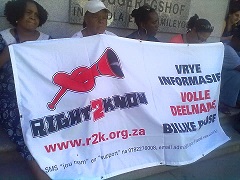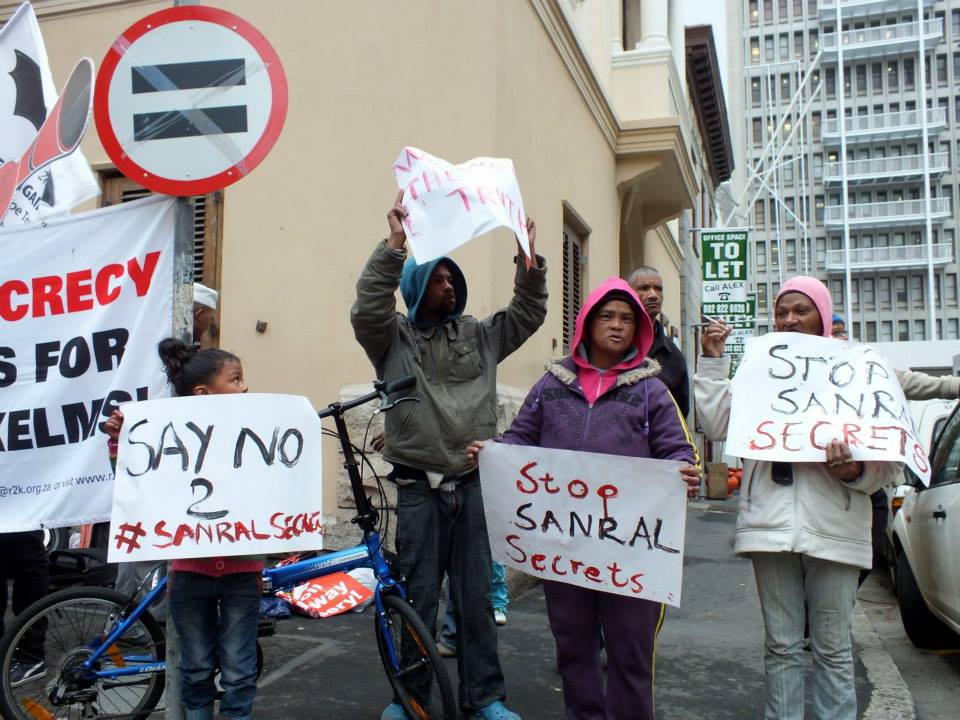Joint statement: Media and civil society organisations fight to protect the public’s right to know
 On Friday 6 March 2015, media and civil society organisations are joining together to protect the public’s right to know what happens in Parliament.
On Friday 6 March 2015, media and civil society organisations are joining together to protect the public’s right to know what happens in Parliament.
The Cape High Court will hear a court application by Primedia Broadcasting, SANEF, the Right2Know Campaign, ODAC and Media 24, seeking to ensure that there is no disruption to the Parliamentary television feed during future sittings of Parliament. The application is brought against the Speaker of the National Assembly, Chairperson of the National Council of Provinces, Secretary to Parliament and the Minister of State Security.
The matter was launched on Monday 16 February 2015 following the events at the State of the Nation Address on 12 February 2015.
The events on that day did not only infringe on the freedom of the media: they were a direct affront to the public’s right to know. The use of signal-jamming technology, which we contend is illegal, and the apparent manipulation of Parliament’s television feed, are a serious threat to Parliament’s openness and to the quality of our democracy.
The Constitution affords all South Africans a right to know what happens in Parliament. Parliament has a concomitant obligation to respect, protect, promote and fulfil that right.
The interim order was to interdict Parliament from jamming the communications from Parliament, ensure that the feed from Parliament is not cut, and that the cameras remain focused on the actions in the chamber.
Since the launch of the court application, both Parliament and the Minister have indicated – explicitly or implicitly – that the jamming of signals will not recur.
While we no longer seek relief regarding the signal jamming, it is important to note that the explanations afforded by Parliament and the Minister are entirely unsatisfactory. They are both internally contradictory and inconsistent with each other.
We strongly believe that if Parliament has the authority to force the state security officials to turn a device off then it must also have the authority to ensure that those devices are not brought onto the Parliamentary precinct at all.
In terms of cutting off the live broadcast feed, Parliament has made it clear that it intends to continue to apply its Broadcasting Policy claiming that the policy of not showing disruptions is consistent with international best practice.
Parliament has failed to provide any substantive defence for its current policy. It makes a general allegation that the policy of not showing disruptions is necessary to maintain the dignity of Parliament, yet it completely fails to explain or justify that position.
On 11 March 2015, President Jacob Zuma is scheduled to answer parliamentary questions and it is highly possible there will be disruptions during that event, therefore the court application seeks assurance from Parliament that audio and visual feeds of all open sittings of the National Assembly or the National Council of Provinces, joint sittings of Parliament, or open meetings of their committees are not interrupted and that during occurrences of “grave disorder” or “unparliamentary behaviour” a wide angle shot of the chamber, including audio, will be broadcast.
Primedia Broadcasting said it was hopeful the courts would uphold its right to media freedom, which the Constitution guarantees.
Eyewitness News (EWN) editor-in-chief Katy Katopodis said “getting a wide angle shot of the chamber is critical during disruptions. It’s in the public interest and the nation has a right to see what’s happening.”
In our court papers we argue that the disruptions in Parliament were deliberate and we are asking that Parliament lives up to the Constitutional principles of openness, accountability and transparency. Our relief is vital to upholding the public’s right to an open Parliament, but also to securing the legitimacy of Parliament.
R2K is represented by attorneys from the Legal Resources Centre.



